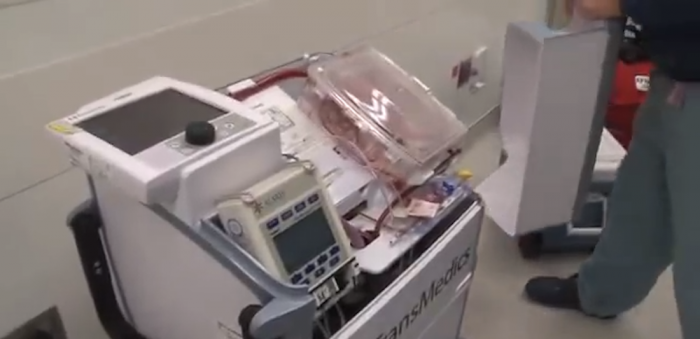
Massachusetts-based medical device company, TransMedics, have designed an organ transplant system that mimics the conditions in the human body. Instead of putting donated organs on ice till they reach their recipient, the organ care system is designed to maintain organs in a warm, functioning state outside of the body. “Hearts beat, lungs breathe, kidneys produce urine, livers produce bile,” says the company.
The portable machine’s design has pioneered the way to a new kind of organ transplant, called a living organ transplant. This increases the amount of time that an organ can be maintained outside of the body. It provides surgeons the opportunity to assess the function of the organ outside the body, and it enables resuscitation of the organ once it is removed from its deceased owner.
All this is done through the company’s warm blood, organ specific perfusion system. Perfusion is defined as the circulation of blood through the vascular bed of tissue. Its inclusion in the organ care system simulates the conditions of the human body and allows the organ to function as it normally does.
The TransMedics’ system uses donor blood and its proprietary solution is infused to replenish depleted nutrients and other necessary substrates in the blood.
“The system warms the organ as necessary, maintains humidity, and protects the organ from contamination. The system enables full functional, biochemical and metabolic assessment of the organ,” says the company.
As the demand for transplants vastly exceed the number of operations doctors are able to perform using the standard method, TransMedics hopes their system will revolutionise the field. According to the company, seven hearts from every ten organ donors go unutilized in part because of the inability of the cold storage approach to adequately preserve the organ.
“Cold storage significantly limits the number of hearts that can be retrieved for a safe transplant,” it adds.
Transplant surgeons in the United Kingdom and Australia have already started using the device. Clinical trials are currently being conducted in the United States, as the product is not yet available commercially in the US.





